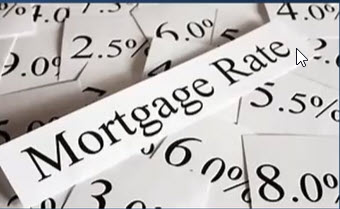
Know Your Limits
A home buyer needs to know their financial limits. A home buyer needs to know how much of a mortgage payment they can qualify for based on their income, but more importantly, they need to also know how much they are willing to pay per month in a mortgage payment. There is a big difference in these two statements!
Some buyers can afford a mortgage payment at the upper limits of mortgage qualifying standards and guidelines, while others are not and desire to keep the mortgage payment at a lower, more affordable level. Buyers have different life styles and personal expenses. Some have higher transportation costs to get to work, such as commuter costs. It is important that buyers know what they can afford to pay in a monthly mortgage payment in addition to their personal financial obligations.
As discussed in a previous post, More Basics for First Time Buyers, a buyer’s mortgage payment should not exceed 28% of their monthly gross income. However, to better understand mortgage payment affordability, a home buyer needs to have an understanding of one of the benefits of owning a home. And that is the benefit of income tax deductions on the mortgage interest and real estate taxes.
Sample Scenario: If the home being purchased involved a $200,000 mortgage at 5% interest, the principal and interest payment would be approximately $1,073 per month. For 12 months, the approximate amount of interest payments would total approximately $9,930 . Let’s say real estate taxes are $6,500 per year. In this example the total interest payments and real estate taxes for a full year would equal $16,430, and that total would be an income tax deduction on Federal and State Tax Returns.
For explanation purposes, let’s use a 20% IRS Tax Bracket. That would result in Income Tax savings of $3,286 for the year on Federal Income Taxes alone. It is highly recommended a Tax Professional is consulted for actual calculations.
The Pre-Approval Process
A home buyer is told that they need to be pre-qualifed for a mortgage loan before they start looking for a home. Yes, that is highly recommended. Obtaining a mortgage is a thorough process and involves an analysis of income, employment history, assets, liabilities and credit. There are underwriting standards which must be met.
If the mortgage approval process is thorough, why shouldn’t the pre qualification process be thorough as well? All too often a buyer speaks with a mortgage lender, authorizes a credit check, provides verbal information about income and then obtains a mortgage pre qualification letter. The pre qualification process should not be a verbal process.
Most buyers do not realize there is adifference in being pre qualified and pre approved.
The Mortgage Application Process
Buyers need to be aware of the mortgage application process. Obtaining mortgage approval can be an easy process or one that many buyers describe as, “a nightmare”.
The mortgage approval process is all about verifying income, verifying assets and verifying liabilities. A home buyer needs to be prepared to provide personal information!
First of all, bring your check book. A mortgage application fee is required with most all applications. The fee is for mortgage processing, the credit check and ordering the bank appraisal for the home being purchased.
It is recommended that home buyers have copies of two years of W2 forms(tax returns if self employed), year to date paystubs, bank saving statements and retirement saving statements. Likewise, copies of outstanding liabilites should also be available, such as student loans, car loans/leases, credit card balances and minimum payments, etc. A personal recommendation: keep copies for yourself. Application paperwork can get lost or misplaced during the mortgage application process, and keeping a copy can save time and aggravation if that occurs.
Many buyers get assistance from family in the purchase of a home. Sometimes it is given in advance and sometimes it is given during the mortgage application process. A gift letter may be required. More importantly, keep a copy of the check deposit for a paper trail. Many lenders will require explanations on any large bank deposits.
The credit check during the mortgage application process wil be more thorough than the credit check done during pre qualification. A buyer should not think they can hide things which exist in their credit history, such as credit card charge offs, late payments, disputes and the like. Items like these can affect the mortgage approval process. If situations like these do exist, discuss them with the mortgage representative in advance.
It is now becoming common for some mortgage lenders to run another credit check prior to closing. A buyer should be cautious on credit card use during the application process, especially large purchases like a car and furniture for the home to be bought. Too much credit card use could have an affect on income qualifying.




